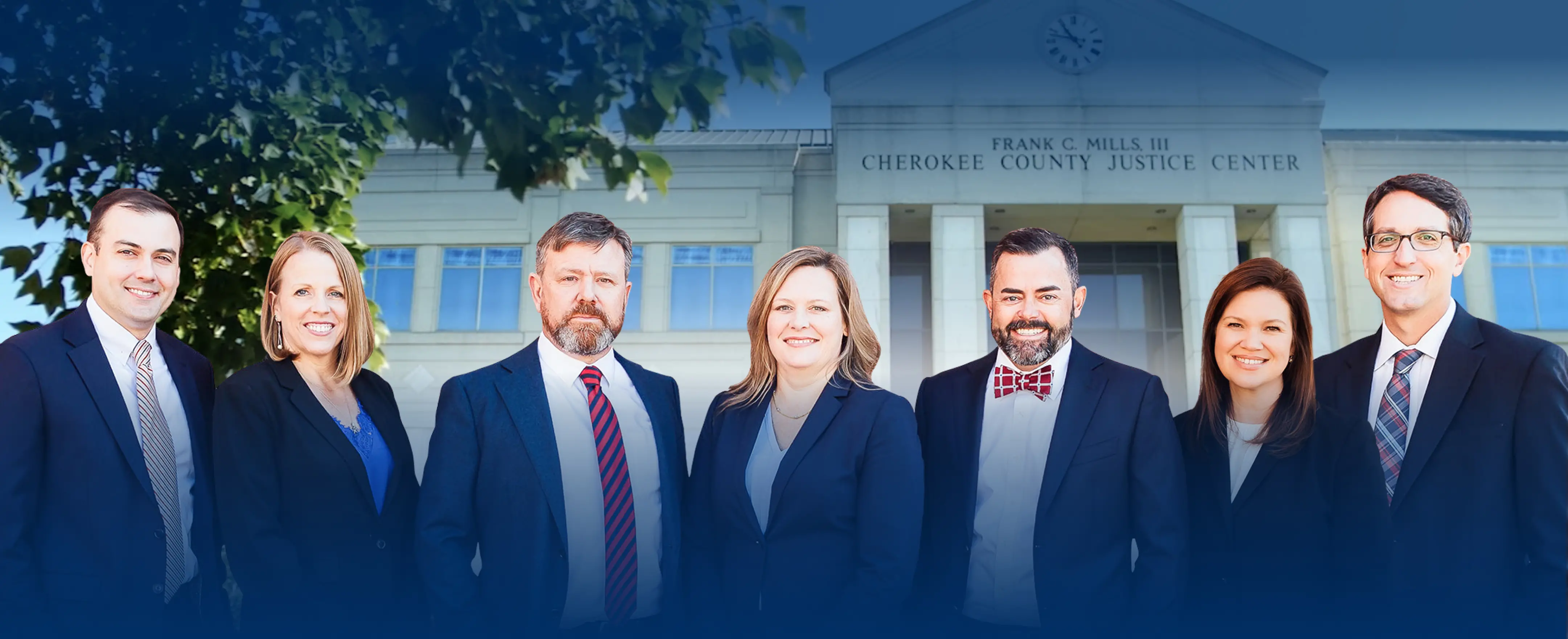
These persons, known formally as wards when they are adults, are individuals who are disabled in some way – either mentally, physically, or both.
Guardianships and conservatorships may also be necessary for minors, either because the parents are not able to provide necessary care or, in the case of conservatorships, because of an inheritance or other financial windfall that must be managed for them.

Who May Need a Guardian or Conservator
- Seniors
The need for guardianships and conservatorships often increases with advanced age, as the elderly experience incapacitations due to the normal aging process. Mobility impairments, mental impairments caused by dementia and Alzheimer’s, as well as other progressive diseases are common reasons seniors may require a guardian and/or conservator.
- Incapacitated Adults
Individuals who struggle with mental illness may struggle with the challenges of daily life, as well. They may have difficulty protecting their own health and safety, trouble managing money and paying bills, or they be unable to make good personal decisions for themselves or protect their own interests.
Those with physical, intellectual or developmental disabilities like Down syndrome may also need the help of a guardian or conservator in order to ensure their ongoing health, safety and financial well-being.
- Minors
Children under the age of 18 who do not have a parent (known as a natural guardian) who is able to properly care for them may be in need of guardianship, as well.
This situation may occur due to the death of the parents, because of abandonment or incarceration, or when one or both parents suffer from a mental, physical or health condition that prevents proper care of the child.
Addiction, illness and neglect are common reasons a court may appoint a guardian for a minor child with living parents.
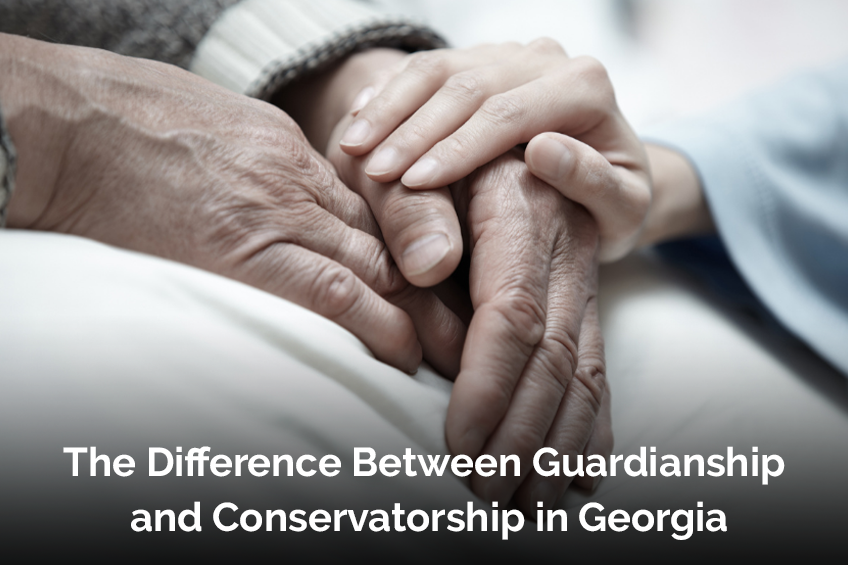
The Difference Between Guardianship and Conservatorship in Georgia
Guardianship and conservatorship differ mainly in the type of supervision needed and in the kinds of decisions that must be made.
There is often confusion about what exactly these terms mean, as they are sometimes used to denote different things in other states.
In Georgia, a guardian looks primarily after the incapacitated individual or minor’s personal well-being, while a conservator handles financial matters.
It is not uncommon that those who require guardianship also need a conservator to manage finances, as well. In these cases, the court may appoint one individual to act in both capacities – a guardian/conservator – or choose different people to perform the different roles.
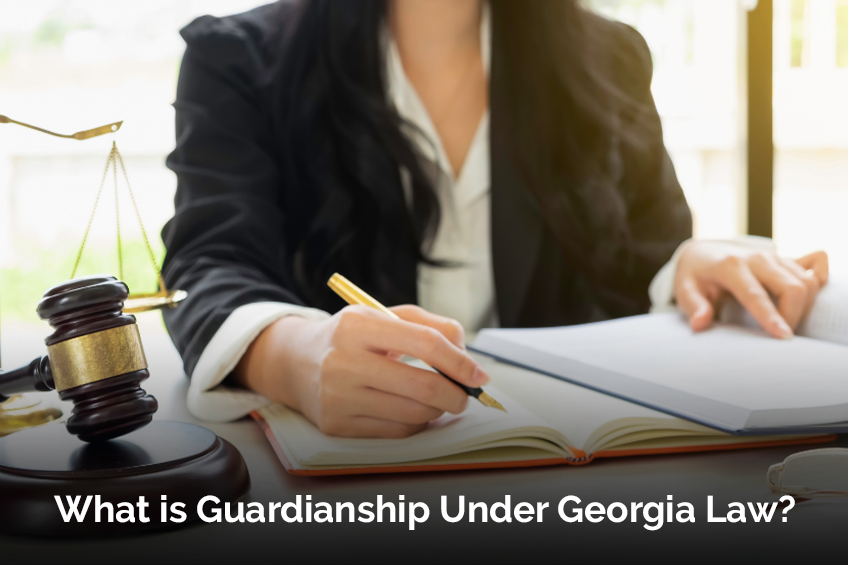
What is Guardianship Under Georgia Law?
For Adults
Guardians of adults in Georgia generally take care of personal care and day-to-day decision making for the ward and work to ensure their health, safety and well-being.
This can include determining their place of residence, ensuring good hygiene and nutrition and coordinating medical care as needed.
Guardians may also handle legal decision making for the ward, including entry into contracts like marriage and participation in court cases.
Ideally, a guardian should only exert control over decisions the ward cannot make for his or herself. The goal is to protect autonomy while ensuring the ward is safe and protected.
This directive comes from Georgia law OCGA 29-5-7(h), which stipulates that guardianships be “designed to encourage the development of maximum self-reliance and independence of the ward and shall be ordered only to the extent necessitated by the person’s actual and adaptive limitations.”
For Minors
Guardians of minors also handle day-to-day care and make all the necessary decisions to ensure the health, safety and well-being of the children in their care.
A legal guardian will be responsible for things like feeding, housing and clothing the child, enrolling them in school, and making medical and legal decisions.
A court may appoint a guardian due to parental decease, or assign one if the parents are unable to care for the child.
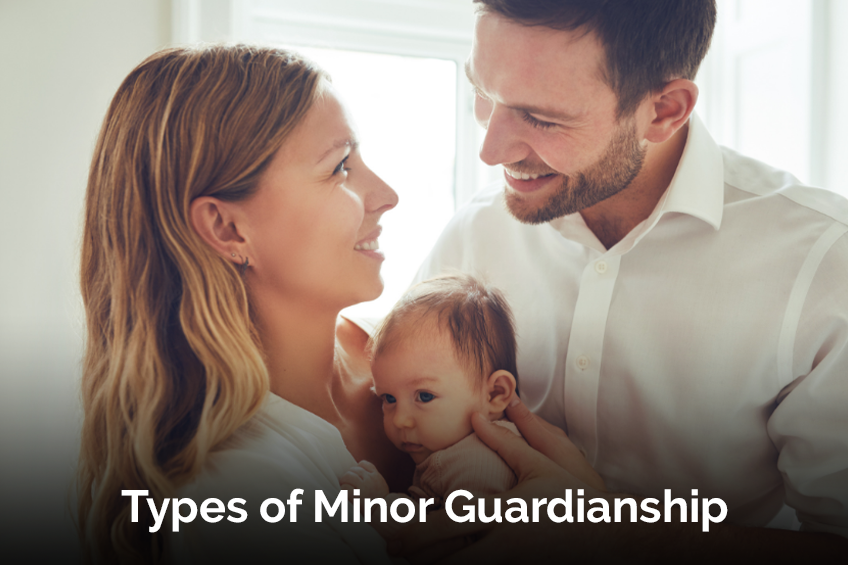
Types of Minor Guardianship
Natural: Both parents are considered the natural guardians of their child. It is only their absence, inability, or failure to care for the child that should trigger a court-appointed guardianship.
Testamentary: A testamentary guardian is the person designated by a parent in their will to care for the child after their death. If the child still has a living parent, the natural guardian will take precedence over any testamentary guardian.
Temporary: A person may petition to care for a minor when parents are temporarily unable to care for the child themselves. The parents must consent, parental rights are conserved, and the guardianship may be revoked at any time.
Permanent: A permanent guardianship order authorizes a person to care for a minor when both parents are deceased or have had their parental rights terminated.
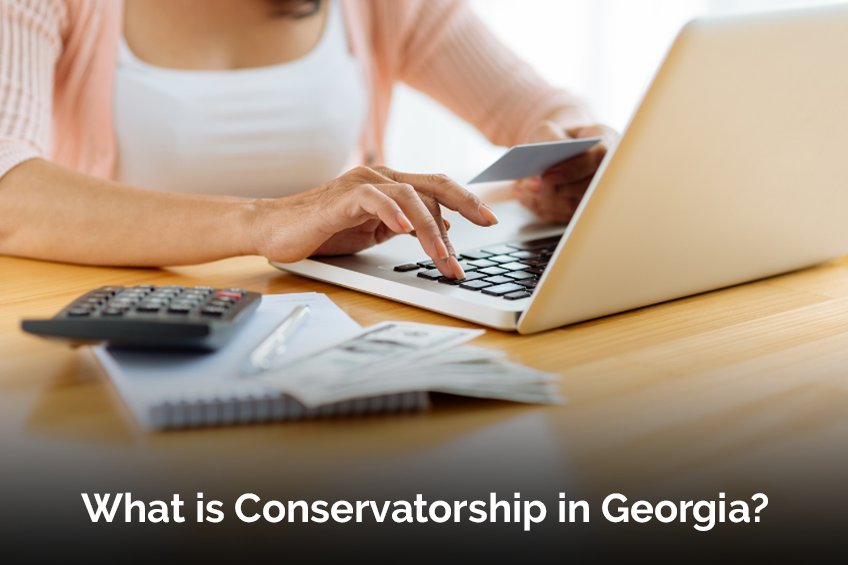
What is Conservatorship in Georgia?
Conservators in Georgia – formerly known as guardians of property – are responsible for taking care of financial matters for their ward or minor child.
Conservators, importantly, do not have control over personal and welfare matters and cannot make medical or legal decisions.
Conservatorship for Adults
Duties for adult conservators may include things like paying bills, applying for government assistance, filing taxes, managing bank accounts and investments, budgeting and overseeing how money is spent.
Conservatorship For Minors
Minors under guardianship in Georgia will also need a conservator to manage their financial affairs. The guardian may also be designated to act as child’s conservator, or that role may be assigned to another person.
Conservatorship for minors may be necessary for minors inheriting assets more than $15,000 in Georgia, unless those assets are held in a trust.
Even minors under the care of their natural guardians – their parents – must have a conservator for property over this amount, as they are not allowed to own property under Georgia law.
Windfalls such as inheritances and lawsuit awards can trigger a need for a minor conservatorship. Being named the beneficiary for a life insurance policy or retirement account may also result in a minor requiring a conservator.
Scope of Guardianships and Conservatorships in Georgia
Guardianships and conservatorships in Georgia vary in their scope and duration. There are temporary guardianships and conservatorships as well as permanent guardianship/conservatorship arrangements allowed under Georgia law.
The powers granted to the guardian may be total, or a limited guardianship or conservatorship may be instituted, allowing more freedom for the ward.
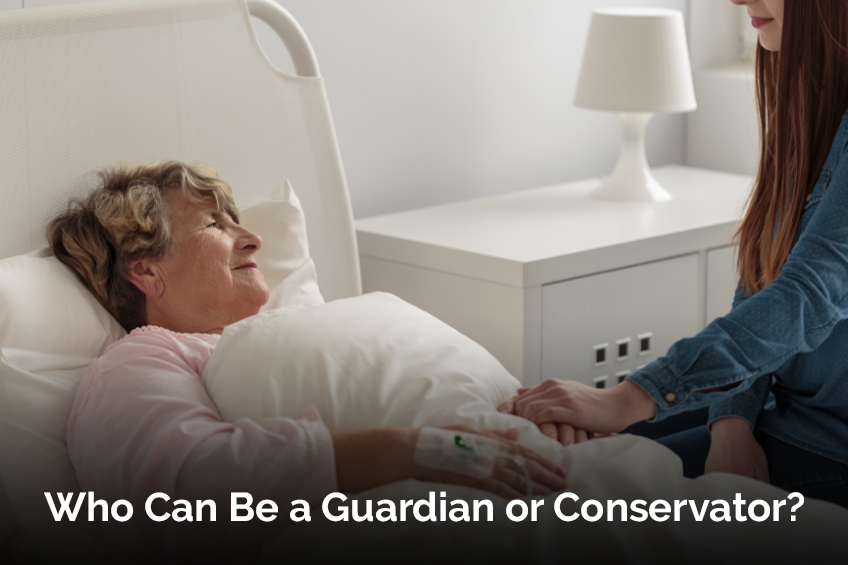
Who Can Be a Guardian or Conservator?
Any person may serve as a guardian or conservator in Georgia, with some important exceptions. The following are prohibited from serving as guardians or conservators under Georgia law:
- Minors
- Wards
- Protected persons
- Persons with a conflict of interest
- Owners or employees of any caregiving facility where the ward receives care, unless they are related
In the absence of a qualified individual willing to serve in these roles, the court may appoint a public guardian. This is an individual or entity who has met specific qualifications, and is registered and approved by the county probate court to serve as a guardian.
In situations where the ward may be in immediate peril or face substantial financial risk before the court can appoint a guardian or conservator, the court may appoint an emergency guardian/conservator.
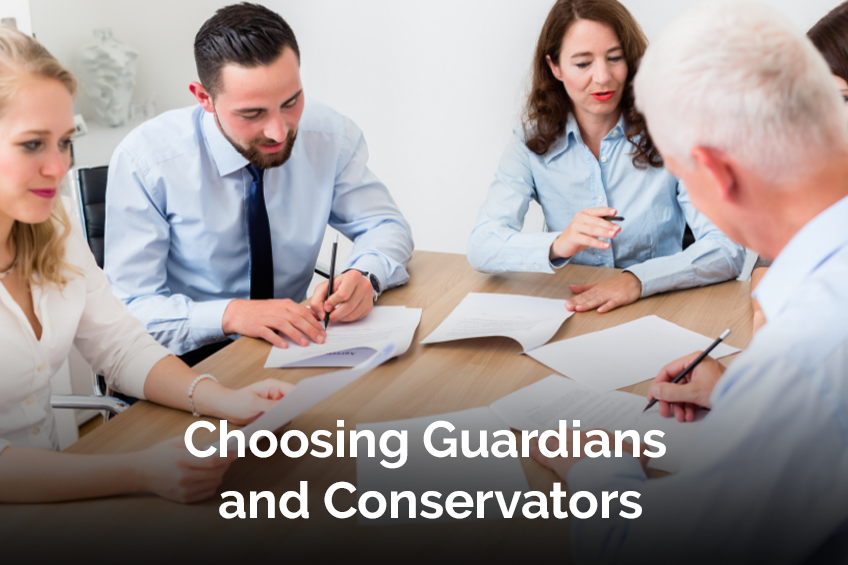
Choosing Guardians and Conservators
In Georgia, the court is required to select the person who is best able to serve the interests of the incapacitated person or minor in need.
The Order of Preference among eligible persons is as follows:
- Person previously designated by the proposed ward
- Spouse of the ward or a person chosen by the ward’s spouse
- An adult child or someone chosen by them
- A parent or individual nominated by the parent
- Guardian appointed while ward was a minor
- Previously appointed guardian
- A friend or relative
- Any other willing and qualified person
- The County guardian, an official who represents the county and is designated to act in this capacity
- A public guardian
Any “interested person” – defined as someone who has an interest in the welfare of the incapacitated person – may file a petition in Georgia probate court to serve as a guardian or conservator.
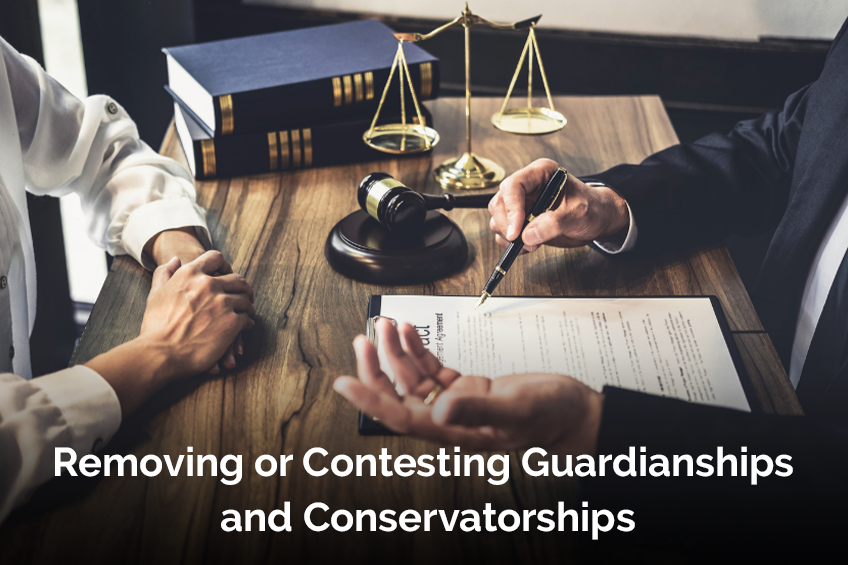
Removing or Contesting Guardianships and Conservatorships
Malfeasance
The guardian or conservator has a duty to act in the best interests of the ward or minor.
Should the guardian or conservator fail to fulfill this obligation, the court may be petitioned to terminate the guardianship or conservatorship under to Georgia law.
The ward, their attorney or a representative may petition the probate court alleging wrongdoing or denial of rights by the guardian.
Any interested party may also lodge a formal complaint if they suspect the ward is being exploited or not receiving proper care.
Finding expert legal representation is especially important when exploitation or abuse is suspected.
Cases like these can be quite contentious, and incapacitations like dementia or manipulation by guardians often make proving wrongdoing difficult.
An experienced elder law attorney who has experience with guardianship and conservatorship cases can help families navigate these difficult circumstances.
These unfortunate situations illustrate why establishing a relationship with an elder law expert during early estate planning can provide benefits later on.
There may also be situations where the need for a guardian or conservator is no longer necessary.
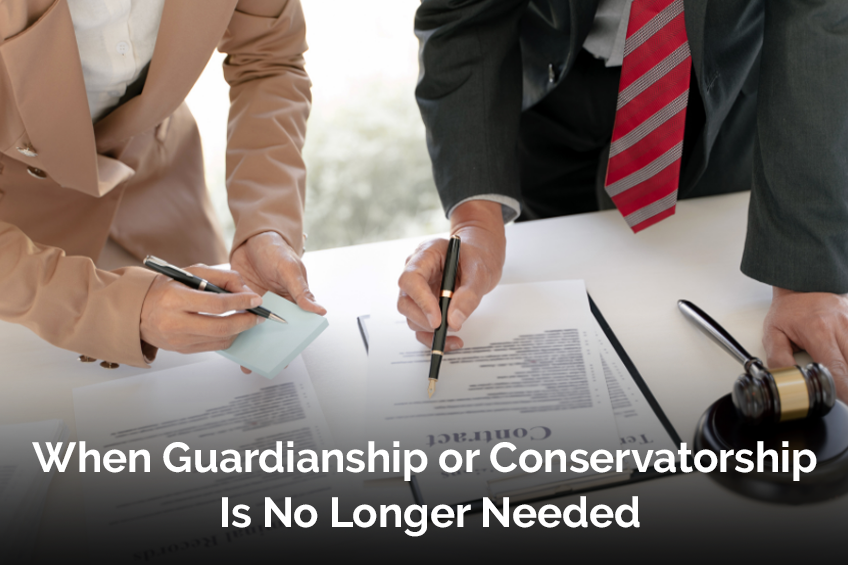
When Guardianship or Conservatorship Is No Longer Needed
In cases where the impairment has been successfully resolved through treatment, or in situations where it can be proven that the guardianship was never necessary, the guardianship/conservatorship may be terminated under Georgia law.
As with situations involving bad guardianship, having an attorney experienced in guardianship and conservatorship cases will greatly improve your chances of successfully petitioning the court for removal.
How to Establish a Guardianship or Conservatorship in Georgia
You will need to petition the probate court in your county for guardianships and conservatorships. While you do not technically need a lawyer to do this in Georgia, it is a good idea to hire an attorney experienced in guardianships and conservatorships to help you navigate the process.
A legal expert can also help you weigh possible alternatives to guardianship and conservatorship – including things like legal custody arrangements, adoptions and estate planning tools like special needs trusts.

The Importance of Estate Planning
According to AARP, an estimated 1.3 million adults are under guardianship in this country, with roughly 85 percent of them over 65.
While some situations are largely unforeseeable in advance, living longer means you are likely to experience some degree of incapacitation as you age.
These age-related changes mean you may very well need a guardian or conservator in the future, and choosing one now can help ensure your continuing well-being and care.
Unexpected incapacitations or worse may also leave your children in need of a guardian or conservator for care.
This is why thoughtful estate planning is so important, even for those in early middle age.
An expert estate planning attorney can help you take control of your future, make your wishes clearly known, and avoid the potential pitfalls of an unplanned guardianship or conservatorship.

Talk to an Estate Planning Specialist
The attorneys at Speights are experts in elder law and in estate planning for individuals of all ages.
We can help you safeguard your future and protect your family by:
- Drafting a will
- Creating a durable power of attorney for medical care
- Creating a durable power of attorney for finances
- Making an advance directive that expresses your wishes
- Setting up a plan for long-term care
- Assigning guardians and conservators for children and special needs adults
- Designating guardians and conservators for yourself
- Establishing a Special Needs Trust
- Helping you qualify for Medicaid or other government benefits that pay for care
Although there are no guarantees in life, careful planning can help you avoid the uncertainties that come with age and disability. Let us help you do everything in your power to make the coming years the best they can be.
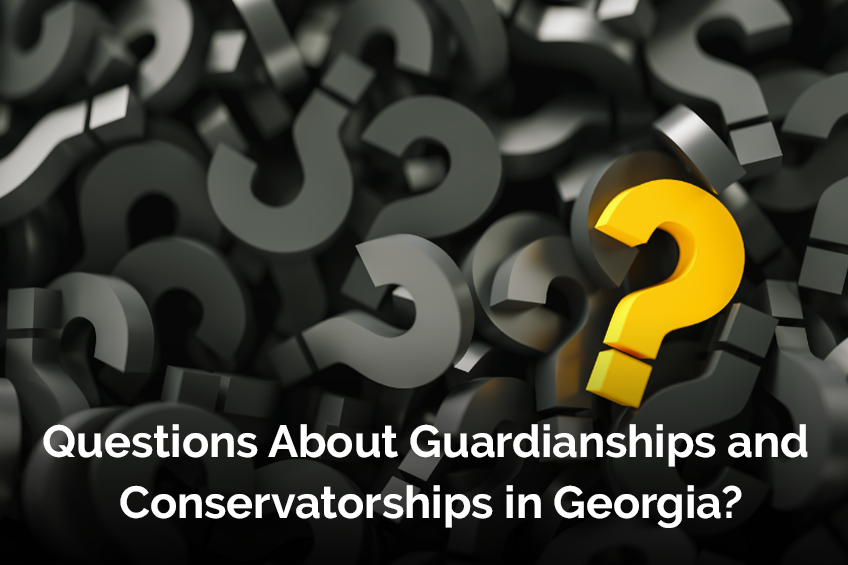
Questions About Guardianships and Conservatorships in Georgia?
We can help. Whether you want to plan for the future or have a pressing current guardianship/conservatorship issue that requires our legal expertise, the team at Speights is here for you.
Call us today at (770) 479-1500 to set up a consultation.
